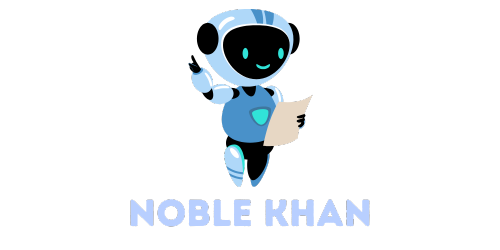In a world where smartphones are practically extensions of our hands and robots are learning to dance, staying updated on the latest science and technology news is more important than ever. From groundbreaking discoveries that could change life as we know it to quirky gadgets that make you wonder if you should laugh or be amazed, the tech landscape is a wild ride.
Curiosity may have killed the cat, but it’s also what drives innovation. Whether it’s a new AI that can write poetry or a gadget that brews coffee with a side of sarcasm, there’s never a dull moment. Buckle up as we dive into the fascinating developments that are shaping our future, one byte at a time.
Table of Contents
ToggleLatest Developments in Science and Technology
Breakthroughs in artificial intelligence continue to reshape various industries. Researchers recently developed an AI model capable of generating realistic images from textual descriptions. The implications for fields like marketing and design remain significant.
In biotechnology, scientists achieved a milestone by creating lab-grown organs that function similarly to natural ones. Medical applications might enhance organ transplantation outcomes and reduce reliance on donors.
Quantum computing is gaining momentum with companies like IBM and Google racing to build more powerful quantum processors. These developments could lead to faster problem-solving capabilities, impacting cryptography and data analysis.
Space exploration has made headlines as NASA’s Perseverance rover collects soil samples on Mars. Findings from these samples could provide insight into the planet’s past and potential for life.
Renewable energy technologies are evolving rapidly. Solar panels with a 22% efficiency rate now capture more sunlight than before. These advances promote cleaner energy production, addressing climate change concerns.
Cybersecurity remains a priority as hackers develop more sophisticated techniques. Companies are investing in advanced security systems to protect sensitive data from breaches, emphasizing the importance of digital security.
Overall, staying informed about these advancements enhances understanding of their impact on daily life. Engaging with the latest developments fosters a deeper appreciation for the innovations shaping the future.
Breakthroughs in Scientific Research
Recent advancements showcase the remarkable progress in various scientific fields. These breakthroughs hold the potential to reshape daily life.
Medical Innovations
Innovations in medicine significantly enhance patient care. Scientists developed new gene-editing techniques that promise to correct genetic disorders, potentially eradicating conditions like cystic fibrosis. Researchers also created mRNA vaccines that not only combat COVID-19 but may also target other diseases in the future. Meanwhile, advancements in telemedicine provide patients with easier access to healthcare, improving convenience and reducing wait times. AI technologies assist in diagnosing diseases more accurately, improving treatment outcomes and efficiency.
Environmental Science Advancements
Progress in environmental science indicates a shift towards sustainability. Researchers innovated biodegradable materials, reducing plastic pollution and promoting eco-friendly alternatives. Developments in carbon capture technology allow industries to reduce their CO2 emissions significantly. Scientists are experimenting with new methods to enhance soil health, boosting agriculture sustainability while maintaining crop yields. Additionally, improved battery technologies are facilitating more efficient energy storage, benefiting renewable energy sources. This collective effort towards environmental advancements reflects a commitment to protecting the planet for future generations.
Emerging Technologies
Emerging technologies are reshaping industries and daily life. These innovations drive efficiency, sustainability, and new possibilities.
Artificial Intelligence Trends
Artificial intelligence (AI) continues to evolve rapidly. Recent models can now generate realistic images from textual descriptions, impacting marketing and design fields. Natural language processing improvements allow AI to create human-like text, enhancing customer interactions. Additionally, AI tools assist businesses in analyzing vast data sets, yielding valuable insights. Machine learning algorithms find application in various sectors, increasing operational efficiency and decision-making speed. Innovations focus on ethical AI, ensuring transparency and fairness in technological applications. Developers prioritize building solutions that reflect cultural diversity and mitigate bias.
Renewable Energy Solutions
Renewable energy technologies are advancing, promoting a sustainable future. Solar panel efficiency rates have reached record highs, making clean energy more accessible. Wind turbine designs improve energy capture, contributing to lower generation costs. Energy storage systems, including enhanced batteries, allow for better integration of fluctuating renewable sources. Hydrogen fuel cells are gaining traction as viable alternatives for transportation and industrial applications. Companies are investing in carbon capture technology to minimize emissions from traditional power sources. Waste-to-energy solutions provide additional channels for sustainable energy production.
Impact on Society
Advancements in science and technology profoundly affect society, changing various aspects of everyday life and raising ethical concerns.
Changes in Daily Life
Innovations in communication technology, like instant messaging and video calls, connect people across the globe effortlessly. Smart home devices automate daily tasks, enhancing convenience for users. Healthcare access improves through telemedicine, enabling patients to consult doctors remotely. Daily routines now often involve AI applications, simplifying tasks like scheduling and reminders. Education has transformed as online learning platforms provide knowledge access to diverse populations. Transportation evolves with electric and autonomous vehicles, promising safer and more efficient travel options. Remote work has increased flexibility, allowing individuals to balance their professional and personal lives effectively.
Ethical Considerations
Technology’s rapid growth presents significant ethical dilemmas. Privacy concerns arise as companies collect vast amounts of personal data, often without user consent. Issues related to algorithmic bias in AI systems threaten fairness and inclusivity. Transparency in AI decision-making processes becomes crucial, ensuring accountability. Biotechnology raises moral questions about gene editing, raising debates over potential long-term effects. Renewable energy solutions, while beneficial, pose challenges regarding land use and resource allocation. Individuals and organizations must navigate these complex ethical landscapes as society adapts to new technological realities.
Future Predictions
Artificial intelligence is projected to increasingly influence various industries, particularly marketing and design, as AI-generated images and human-like text become commonplace. Advances in natural language processing will enhance customer interactions, leading to more efficient data analysis. Ethical AI efforts grow to address transparency and fairness, aiming to represent diverse cultures and reduce bias.
Lab-grown organs, which scientists are developing, may revolutionize organ transplantation. Scientists expect that these advancements could lead to significantly improved outcomes for patients. Quantum computing is set to achieve breakthroughs, with tech giants like IBM and Google enhancing processor capabilities, improving problem-solving skills across multiple sectors.
Space exploration is on the brink of new discoveries, with NASA’s Perseverance rover collecting soil samples that might offer crucial insights into Mars’ history and potential life. This exploration effort helps to expand humanity’s understanding of other planets and the universe. Renewable energy sources continue to evolve, with solar panel and wind turbine technology driving higher efficiency rates.
Energy storage systems are positioned to play a vital role in integrating renewable energy sources. Considerable investments in carbon capture technology and waste-to-energy solutions aim to combat climate change by reducing emissions.
Cybersecurity measures will also adapt as companies address more sophisticated hacking techniques. Advancements in scientific research are expected to reshape medicine and environmental science, particularly with gene-editing applications and mRNA vaccines offering hope for eradicating genetic disorders.
Telemedicine is gaining traction, enabling greater healthcare access and diagnosing accuracy through AI. Research into biodegradable materials promotes sustainability efforts, marking significant strides in reducing pollution. These innovations collectively reshape societal norms, while also raising ethical considerations about privacy and algorithmic bias, necessitating careful navigation through emerging technological landscapes.
Staying updated on the latest science and technology news is essential for understanding the rapid changes shaping the world. As innovations continue to evolve in areas like artificial intelligence biotechnology and renewable energy, they promise to enhance daily life and address pressing global challenges.
While the benefits are significant the ethical implications require careful consideration. As advancements unfold it’s crucial for individuals and organizations to engage in discussions about privacy fairness and the societal impact of these technologies.
By remaining informed and proactive about these developments people can navigate the complexities of a technology-driven future with confidence and insight.

